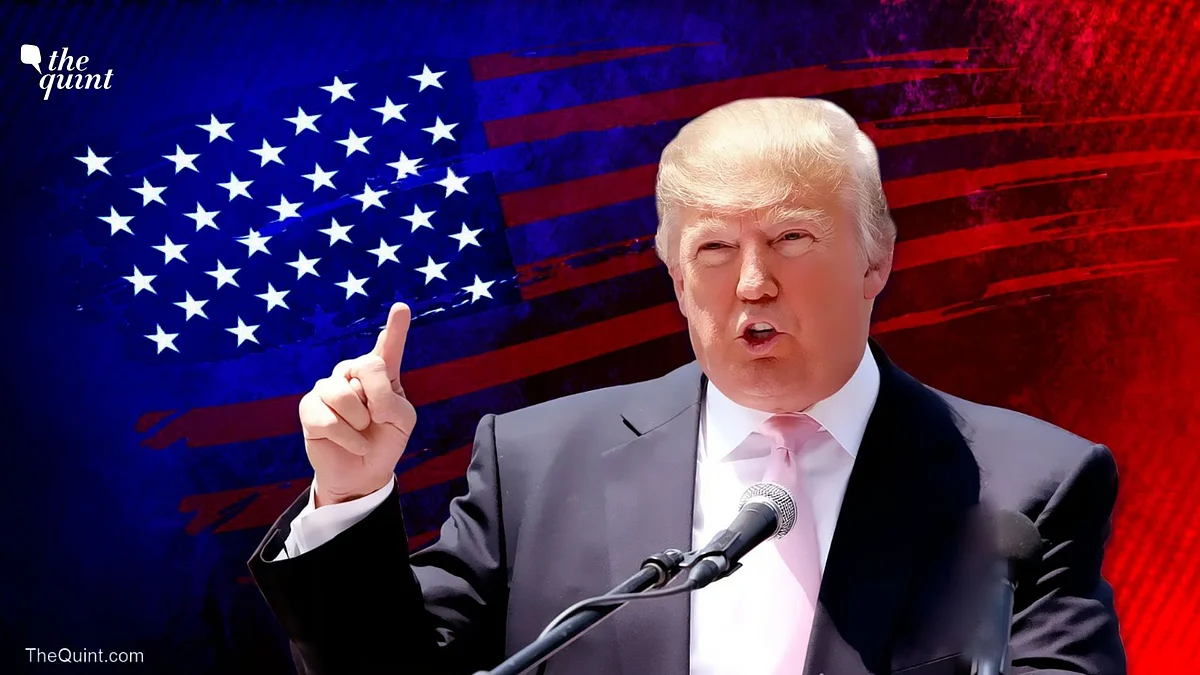
The H1B Backlash Spells Big Trouble for India's Middle-Class
If Trump bows to rightwing support base to cut H1B visas, lot of upper middle-class money will go down the drain.

advertisement
The H1B visa – the golden ticket that lets foreigners earn in the USA – is under attack from the MAGA right. It is clear that in spite of Donald Trump’s support for the H1B visa system, the logic of populist politics will force him to cut back on it. Even the world’s most powerful plutocrat, Elon Musk, who had initially promised to go to war for H1B visas has been forced to backtrack. He now admits that the H1B visa system is “broken” and in need of “major reforms.”
This is bad news not just for Indians who hope to get H1B visas someday, but also for every white-collar corporate worker at home. To understand why, we need to look at three interrelated things: First, the H1B visa system itself. Second, the importance of H1B visas for IT jobs and salaries. And finally, the effect of IT jobs on white-collar employment across the board.
Let’s begin with what has happened with H1B visas in the past five years. Over 2.8 million H1B visa applications were ‘certified’ by US authorities. (Not every certified application results in a visa; about 20-30 percent are rejected.) Out of these 2.8 million certified applications, over 70 percent were for IT-related roles, and another 7 percent were for finance and accounting positions.
The biggest of these is Cognizant, while others like Infosys, TCS, Wipro, HCL, Tech Mahindra, Mphasis, are all among the top 10 tech companies with certified H1B visa applications. The bulk of their H1B employees come from India, and an overwhelming majority are brought in for IT roles.
If they had to hire a local techie, they would have to pay about $175,000-200,000 per year. The H1B jobs offered by the India-based IT companies pay about half that much. Most of the jobs on offer fall between the $80,000-120,000 range.
That is not a lot in the USA. In purchasing power parity terms, it is about ₹1.5-2 lakh per month, not much more than what a mid-rung IT employee would earn in India. But in official exchange rate terms it is another matter. If an Indian employee, on an H1B visa works for the full six years allowed under the visa conditions, and manages to save 25 percent of their income, they will return home with a neat ₹1.0-1.5 crore in savings.
So, getting a temporary job in the US on an H1B visa can significantly change a middle-class techie’s life, in a relatively short time. That is why, the promise of an ‘onshore’ job in America is a great way to poach talent in the IT sector. This also forces IT companies to offer comparable ‘offshore’ salaries to retain talent.
In other words, even though H1B visas offer relatively low salaries in comparison to the cost of living in the USA, they end up inflating IT salaries at home in India. Of course, this is only true for those who are in mid-to-senior rung positions. IT salaries at the starting level are now abysmally low; they have remained more or less the same for a decade. But people stick on, because once an IT employee gets 7-8 years of experience, they can hope to get higher salaries, or even go to the US on an H1B visa.
India’s IT sector is also the single biggest white-collar employer. Even though IT companies have reduced their hiring, they still account for 45-50 percent of open white-collar positions. That is why salaries in the IT sector have an impact on all white-collar jobs in the country. Companies in other sectors have to match IT salaries – or at least come close to them – to be able to get good talent.
That is also the reason why middle-class parents push their kids to study computer science. IT jobs have been a passport to affluence for the first 15 years of this century. Since then, starting pay in IT companies has stagnated, but the middle-class still bets on it. The rise of startups has made it even more attractive. There’s a rush to study AI in the hope of making big bucks in the startup ecosystem.
This will definitely take a hit if H1B visas stall. If Indian IT companies have to hire locals in the USA for onshore jobs, their overseas wage bill will rise, forcing them to cut it at home, in order to maintain profit margins.
Automation and AI have already started taking their toll on IT jobs. For the first time ever, the biggest IT companies like TCS and Infosys have reduced their employee strength. This is why IT jobs are fetching lower salaries now, because there'sa a huge oversupply of job applicants. If H1B opportunities are reduced, even mid-to-senior level jobs will pay less. And that will have a spillover effect on all white-collar salaries in the country, irrespective of seniority or experience.
The biggest problems will be faced by children from affluent middle-class families, whose parents earn enough to send them to study in the US.
Most of them are investing in the hope that their children will get jobs in the USA. If they are studying computers, they will get two additional years after graduation for ‘Optional Practical Training (OPT).’ After that, they will need H1B visas. If Trump bows to his rightwing support base and cuts H1B visas to Indians, that will be a lot of upper middle-class money gone down the drain.
- Access to all paywalled content on site
- Ad-free experience across The Quint
- Early previews of our Special Projects
Published: undefined